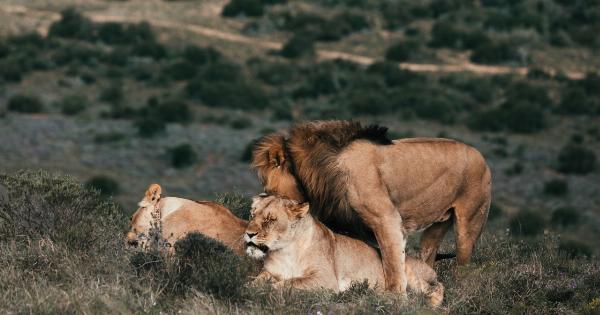In every relationship, the personalities of the individuals play a major role. The way a person’s personality is can greatly impact how they behave and react in different circumstances.
As a relationship evolves, the roles of personality in the relationship become more apparent. In this article, we are going to discuss the different ways personality plays a role in the evolution of a relationship.
Attraction
The very foundation of a relationship is attraction. Personality plays a major role in how attracted individuals are to one another. Different personalities can attract or repel each other.
People tend to be attracted to individuals with personalities that complement or satisfy their own needs. For example, an introverted person may find a more outgoing partner appealing as their partner can help them break out of their shell.
Communication
Communication in a relationship is important for the relationship to grow and develop. Different personalities can cause issues in communication.
Certain personalities may struggle with expressing their emotions or may struggle with understanding their partner’s emotions and needs.
Good communication requires understanding and respect of each other’s personalities to avoid misunderstandings from occurring.
Partners having the same personality can allow for better communication and understanding as there is less miscommunication due to similar approach to communication.
Conflict Resolution
It is inevitable that at some point in a relationship, conflicts will arise. Personality plays a significant role in the way individuals handle conflicts.
For example, individuals experiencing conflict could respond by avoidance or attacking the problem head on.
If partners have incompatible personalities, it can cause problems when conflicts arise since each partner has a different way of dealing with them. Being aware of each other’s personalities can help partners adjust when conflicts arise.
Managing Change
As a relationship evolves, there will be changes that occur. Changes in circumstances like moving or starting a family can have a significant impact on how partners relate to each other.
Personality plays a role in how individuals manage change in the relationship. Couples with complementary personalities can manage and adapt to change more effectively.
As individuals grow and develop, their personalities may change. Partners should be able to recognize and adapt to these changes for the relationship’s continued evolution.
Trust and Honesty
Trust and honesty are important in a relationship. Personality can affect an individual’s ability to be honest and trustworthy.
Certain personalities may struggle with trust issues, while others prioritize honesty and trust in a relationship. Understanding each other’s personalities can help couples establish good communication, trust and honesty.
Intimacy
Intimacy is essential in a relationship, as it allows partners to connect on a deeper level. Personality can affect the sexual and emotional aspects of intimacy.
Partners with complementary personalities can experience mutual physical and emotional satisfaction from intimacy.
Companionship
Companionship in a relationship involves being there for each other emotionally, mentally, and physically. Personality plays a role in how partners take care of each other, fulfill each other’s needs, and interact daily.
Understanding each other’s personalities can help partners provide strong companionship in the relationship.
Appreciation
Appreciating and valuing each other’s personalities can strengthen a relationship. Complimenting each other’s personalities and complimenting each other allows partners to embrace the differences in their personalities.
Partners appreciate each other differently depending on their personality and what resonates with them.
Independence and Interdependence
A balance between independence and interdependence in a relationship is key to a healthy and sustainable dynamic. Personality can influence whether a partner is more independent or interdependent in a relationship.
For example, individuals with a more codependent leaning will require more attention, which could be taxing on an independent partner.
Understanding and appreciating each other’s independence and interdependence in the relationship can avoid strains on the relationship in the future.
Conclusion
Personality plays a critical role in the evolution of a relationship. Understanding and respecting each other’s personalities can lead to happier and more fulfilling outcomes for both partners.
Being aware of individual differences, managing changes as a partnership, and establishing strong communication can ensure that the relationship’s evolution continues in a positive direction.


























